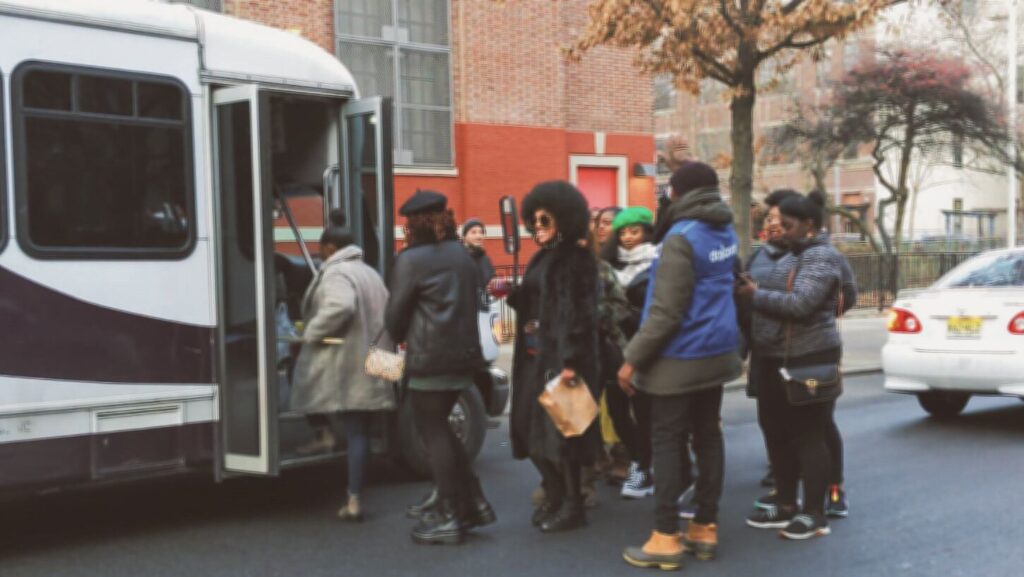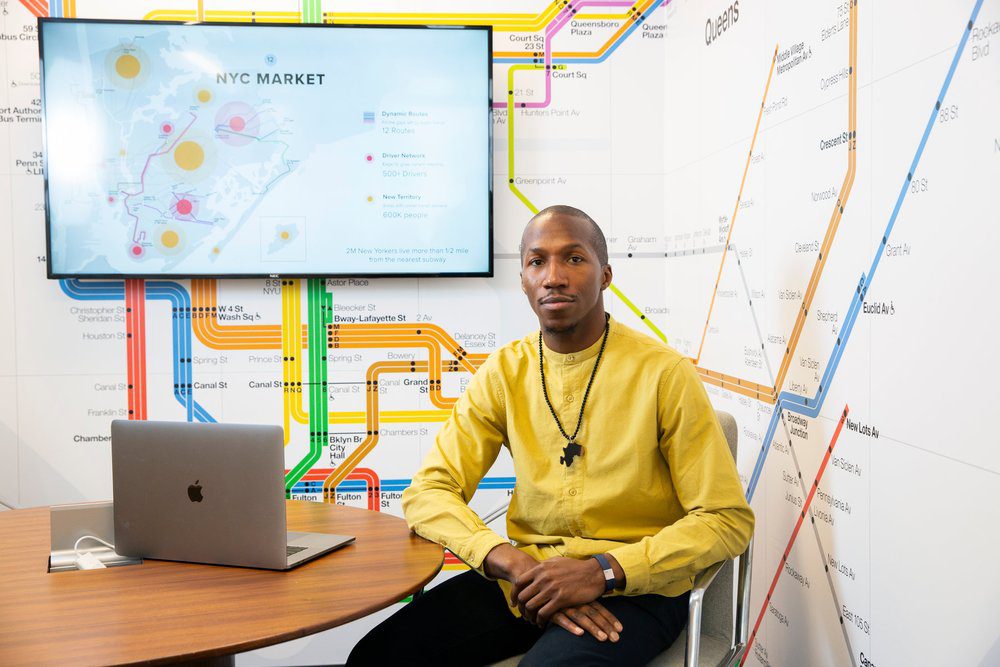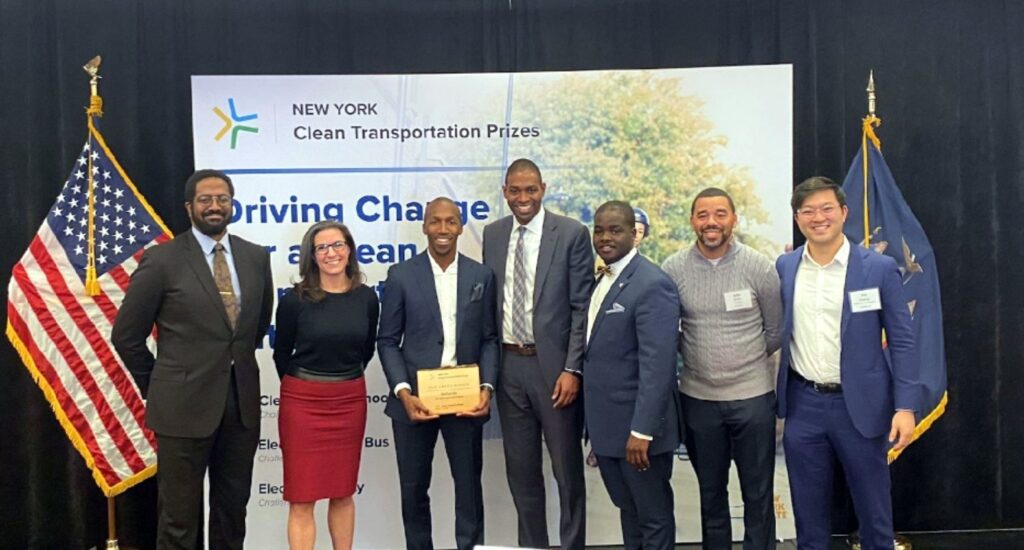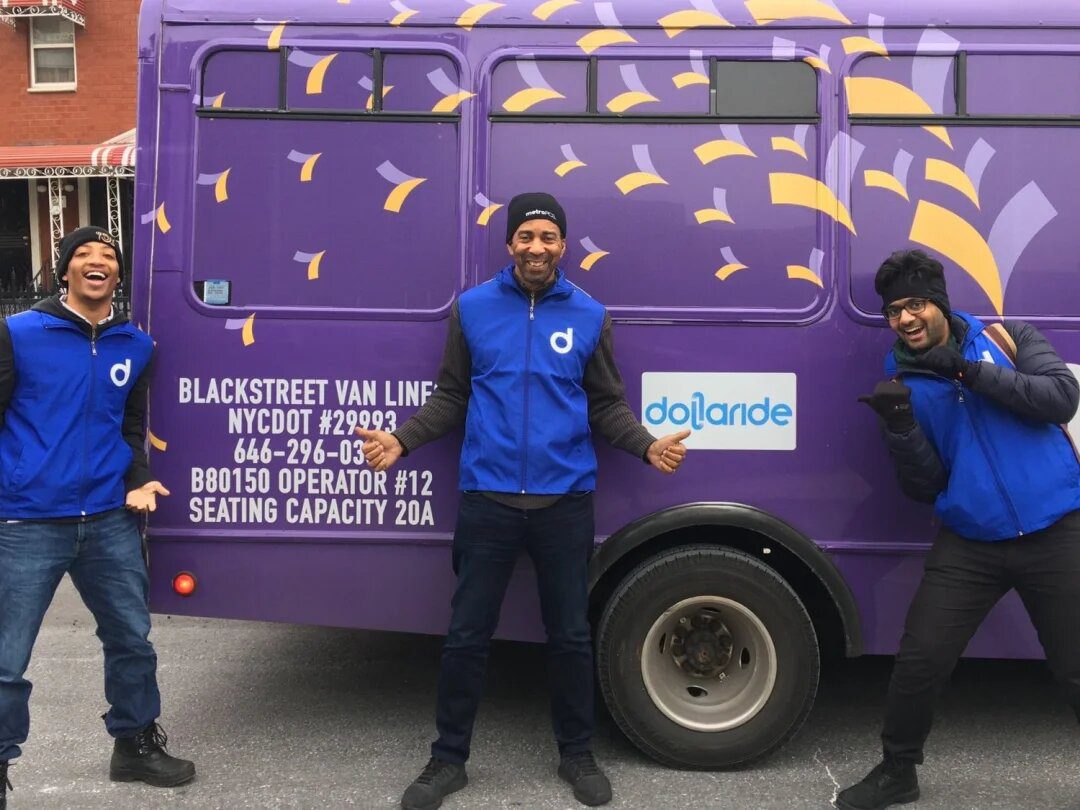Let’s travel back to the 80s. There were parachute pants, waterbeds, and Blockbusters in every town. But another trend was also taking the nation by storm, and it has far outlasted the others.
A 1980 transit strike brought the buses and subways in New York City to a sudden stop, and those living further from the hubbub of activity found themselves even more cut off than usual. To fill the gap, some people began to obtain vans and charge $1 to transport others.
The strikers stopped after 11 days, but the drivers did not as there was a demand for their services from lower-income communities in the Bronx, Brooklyn, and Queens. The so-called dollar vans continued to provide an essential service to the 2 million people living in transit deserts in New York today.

Photo Courtesy Dollaride
Su Sanni, a Brooklyn-born New Yorker, founded Dollaride, a ride-sharing app to help navigate this shadow transit system. He was inspired by two of his uncles who immigrated to the U.S. from Nigeria and operated such ride-share vans. He also had the childhood experience of walking a mile daily to the subway station.
Sanni’s technology effectively eliminates the existence of transit deserts by enabling anyone to call a commuter car.
“Our mission is to make public transportation accessible to anyone, anywhere, starting with those who live in transit gaps,” Sanni explains.
In addition to offering cheap rides, usually about $2, Dollaride enables customers to pay easily via an app. The result is students and workers have shorter commutes and better access to fresh food, medical care, and economic opportunities in surrounding areas.

Photo Courtesy Dollaride
Plus, this mode of transportation offers faster and more efficient rides than other public options. These vans are also more comfortable for passengers. With 15 to 25 seats and only picking up riders if there is space, they are roomier than overcrowded buses or subway cars.
Additionally, many of these commuters are from ethnicities where their first language is something other than English. Because these drivers are local community members, there are fewer cultural barriers.
“If you pass your stop, or you take a little nap, when you bring your head up, you know you made a mistake and have no idea where you are. Then what options do you have?” explains Chen Dao, a Chinese immigrant. “You have no idea where to go, you look around, and there are no Chinese; you can’t ask anybody how to get home.”
One of the places that has seen the most impact from Dollaride’s services has been the GatewayJFK Business Improvement District in Queens. Between October 2021 and August 2022, ride requests increased by 250%, providing 36,500 total rides.
“This is considered a transportation desert, so this gives us an opportunity to increase accessibility to transportation, which is the great equalizer, and in tandem create jobs,” said Donovan Richards, president of the Queens Borough.
Drivers have faced a lot of difficulty over the years. Although the New York City Taxi and Limousine Commission started to permit them to operate in 1994, their licenses were expensive and restrictive on the routes they could take and who they could pick up.
The drivers are intended to be significant beneficiaries of Dollaride’s investment. Using technology like GPS and stop requests, they can better plan routes, meet demand, and expand their number of dedicated riders. In addition to having a good source of income, they also lower their expenses, with their insurance, rental, and electric charging costs bundled.

Photo Courtesy Dollaride
Speaking of electric charging, Dollaride was awarded a $10 million grand prize in November through the Clean Neighborhood Challenge, one of the New York Clean Transportation Prizes overseen by the New York State Energy Research and Development Authority. The program awards initiatives that cut down air pollution affecting underprivileged communities.
With the funding, the company will invest in electric shuttles and 35 charging stations that will be deployed in Brooklyn and Queens this year, with a goal of 60 to 70 EVs within two years. Dollaride’s Clean Transit Access Program will also help cover the drivers’ electric transition costs. The company is partnering with local organizations BlocPower, HEVO, and Build Edison as part of the roll out.
Additionally, the company teams up with small businesses with drivers and cars and helps them provide commuter services through the Dollaride platform. The firm serves the area by working with the community, fulfilling Sanni’s dream. The Theodore Herzl quote tattooed on the entrepreneur says it all: “If you will it, it is no dream.”





